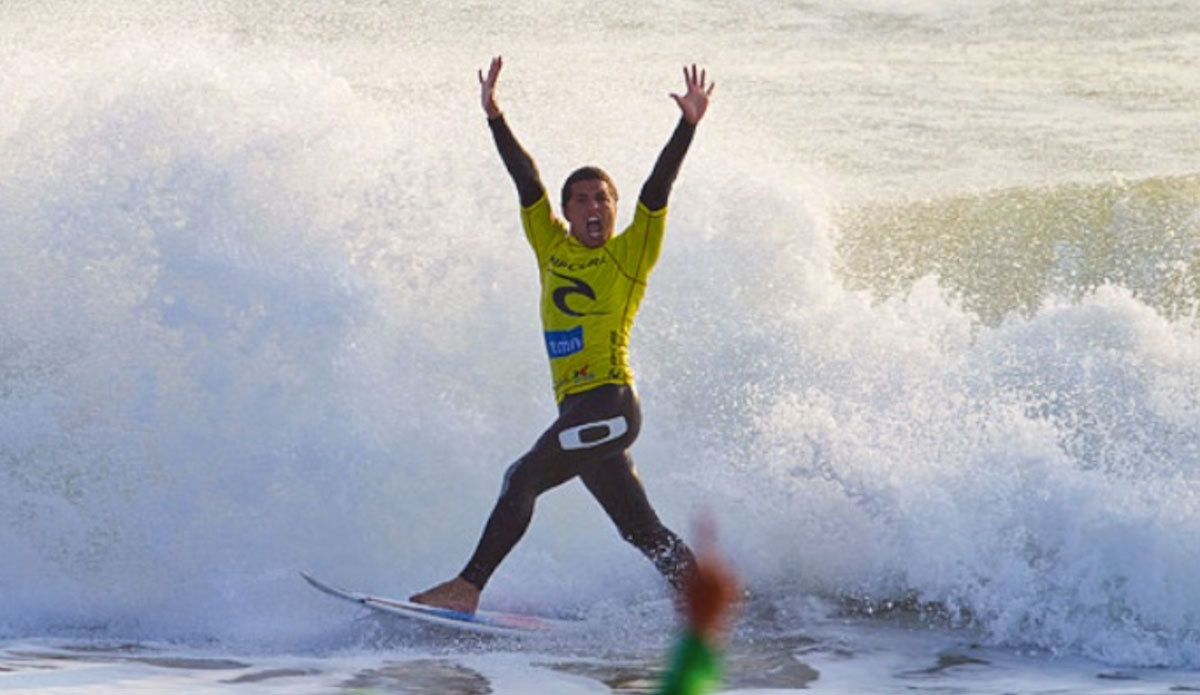
Turns out judges are suckers for a good claim. Photo: WSL
Surf fans of all stripes have a love-hate relationship with a particular phenomenon known as claiming. To some, celebrating one’s own triumphs on a wave during competition, no matter how genuine, whiffs of the type of self-congratulatory behavior that should not only not improve your scoreline but should be punished. For others, the act of claiming is the exact sort of passion you hope to see from your favorite athletes in a heat and simply comes out naturally.
Now, perhaps one of the most widely despised behaviors in pro surfing is when athletes celebrate a wave that we know they know is not exceptional and seemingly get scored higher for it. In a heat, say, if two surfers ride two nearly identical waves and one simply kicks out and paddles back to the top of the point while the second disingenuously throws his or her hands in the air in complete and utter (fake) jubilation, why should the second be rewarded for their acting skills? So the logic goes, anyway.
Well, until now any evidence to support the idea that a claimed wave often gets scored higher than a non-claimed wave, genuine or not, has been circumstantial at best. But a recent study published in the Journal of Sport and Exercise Psychology seems to suggest that among fans and judges, a wave punctuated by a claim is often felt to be deserving of a higher score than that same wave without one. Whoa.
According to their paper, Philip Furley, a researcher at the German Sport University Cologne, and his co-authors explain that they polled 110 laypeople and 41 surf judges in an effort to understand whether the act of claiming, a phenomenon they call “postperformance nonverbal emotional expressions,” actually has an impact on the score value respondents would ascribe to a wave ridden by a professional surfer.
What they found may or may not be surprising: in both groups, the researchers were able to detect a measurable bias.
“The central aim of the present research was to investigate if claiming (“postperformance nonverbal emotional expressions”) influences people in evaluating performance during surf contests. Both experiments provided evidence that both laypeople and surf judges were biased by claims in judging waves with claims better than waves without claims.”
And while additional research could certainly be done with larger sample sizes to further test this theory, it’s not lost on the authors that surfing is a subjective sport and these biases could be manipulated by athletes simply hoping to increase their scoreline by any means necessary.
“As surfing competitions rely on subjective judgments of judges to determine the outcome, these findings have important applied implications for judges and training programs ought to implement interventions to avoid or reduce these biases,” the study explains.
You listening, WSL?

